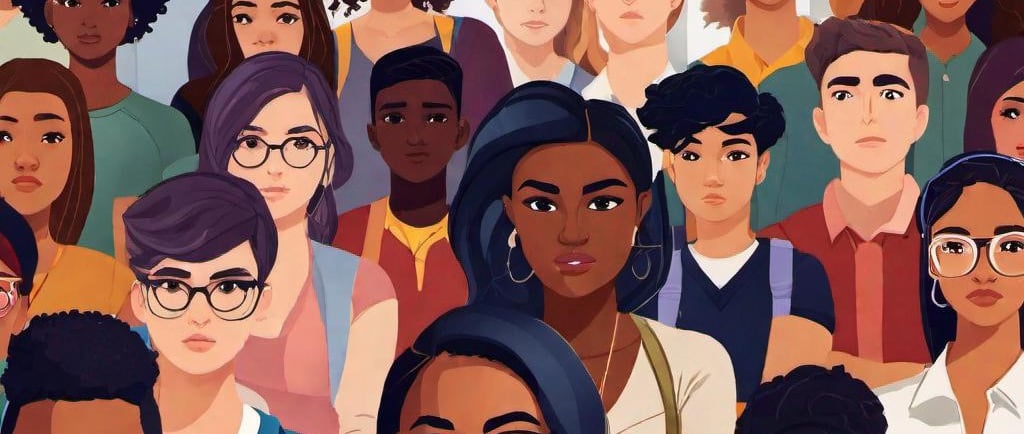Want teens to care more about school? Start by agreeing with how much of it is b.s.
We're not doing teens or ourselves any favors when we pretend that school is more relevant and useful than it actually is. They're right to question it, especially with the increasing rate of workforce change brought about by ongoing AI developments.
2/11/20246 min read


“Wait, your book is about teen motivation? My son/daughter couldn't care less about school -- what do I do about that?"
I’ve heard this question a lot from fellow parents when they learn about our upcoming book, and I can relate. My middle schooler frequently doesn't care about school, despite having wonderful teachers and hyper-educated parents. One of the things that’s helped most whenever my son and I get into a conversation about school seems counter-intuitive, however: I agree with him that much of what he thinks is irrelevant nonsense is, in fact, irrelevant nonsense. This same approach helps when I talk with teens about their experiences in school and how to make them better. Teens have an excellent b.s. detector, and it makes a difference when they realize I'm not trying to sell them a standard line and actually agree with them that most of what they’re asked to do for school is likely going to be useless to them later in life.
This has only become more true as we’ve progressed from the information age to an age of artificial intelligence. Though we want school to prepare young people to be productive citizens and members of the workforce, and therefore we want it to help them build and practice skills and mindsets that will serve them throughout life (e.g. skills in communication, critical thinking, problem-solving, and so on), it is almost impossible to design a standardized test of nuanced skills. (I’ll reserve what I think about the effects of the standardized testing system on education, and exactly who it benefits the most – hint: it’s not parents, kids, or educators who are making a ton of money off it – for another day.)
So instead, tests become measures of how much content someone has memorized plus how good they’ve gotten at the test-taking skills of that particular area (as one of the students we interviewed for our book bemoaned, she took an AP gov class because she wanted to learn more about how our government worked, but instead they spent a full third of their time practicing specific skills for getting a good score on the AP government test, and thus she had to go outside class to learn the answers to her questions).
This is nothing new. Sir Ken famously critiqued the industrialized education model 18 years ago for its failure to prepare children to succeed in a changing and uncertain future, and his talk remains the most watched TED talk in history (when I checked, it was at over 76 million views). Despite the popularity of his talk, and the length of time we’ve had to make changes, school still, on the whole, isn’t designed to make students more likely to emerge as creative problem solvers ready to tackle the unknown.
In the meantime, the gap between what you need to be good at to succeed in school and what you need to be good at once you hit the workforce is not only continuing to increase, the speed at which that gap is growing seems to be getting faster and faster. AI is already better at memorizing, synthesizing, and regurgitating content than any human could be, and it gets even better every month. As an example: some studies show AI may already be better at making and communicating medical diagnoses than doctors, especially new ones – and even new doctors have far more years of study and practice learning and applying specialized content than the average person with a Bachelor's degree.
As a manager, I have hired, trained, and given feedback to dozens and dozens of young people over the course of my career, both those who were still in college and those who had recently graduated. What I’ve observed is that those who expected work to be like school – who expected, in other words, to be told what problems to solve and how to solve them – were far less immediately successful than those who had leveraged school to their own ends, treating school like a piece of a puzzle they had to figure out how to fit in rather than a blueprint for success. This was a problem before people could design prompts to have a computer conduct analysis, write code, create content, or explain a market trend. Before now, it meant managers needed to invest in developing their people, while prizing the college and university programs that were good at doing some of that for them. Now, why would someone bother to teach a person how to do a job if they can get a chatbot to do it faster, cheaper, and better?
I’m no futurist. I don’t know where the workforce is headed, obviously. But AI is not just outperforming people at obvious machine learning activities like multitasking and analyzing large pools of data. It’s also doing things like outperforming college students on a key test of creativity, the Torrance test. In other words, students are not wrong to be increasingly suspicious of school’s relevance and efficacy. As a society, we should be taking a hard look at why and how school works, and what we should change about it – and we shouldn’t just leave that conversation to be held by tech specialists and education wonks.
But that doesn’t do much for those of us in the midst of it right now, for whom those bigger picture conversations won’t mean anything about the day to day pressures we’re feeling, or the regular arguments we’re sucked into about grades and homework around the dinner table. That’s the harder place to be in, especially for those of us who don’t have the resources to just pull our kids into some alternate way of schooling, and who don’t have the kind of interesting public options in our area that some people are lucky enough to have (‘ll admit my family and I are luckier than most, but I can’t help but be jealous of some of the young people who we interviewed for the book who had some truly amazing options in their districts).
I don’t think there’s any one-size-fits-all approach for these situations, because every teen's interests and capabilities vary so much. But I have found that starting by not defending a system that hasn’t yet shifted to be truly relevant is more effective than trying to defend it.
Empathizing with why it feels bad to be expected to do something that feels like a massive waste of time by agreeing that it might indeed be a waste of time feels really risky to some parents and educators. It feels like you’re saying “sure, drop out, it’s all idiotic anyway.” It also feels like it might be disrespectful to all the educators who are trying really hard to make the materials in their classes interesting and relevant. In my experience, however, these things aren’t the same. It’s far easier for most people, not just teens, to see and appreciate how hard someone else is trying once their own situation has been received with empathy. And you can acknowledge that something is broken without saying “and therefore let’s throw it away” – if the broken thing still solves more problems than its alternatives.
So, the next time a teen you care about rolls their eyes about how school is going, consider surprising them by agreeing with them. Surprise them even more by giving them extra reasons to doubt the usefulness of what they’re being asked to prove they’ve learned. And then see if it opens up a new way to talk and think about what they actually want to learn right now, and how they can leverage opportunities inside and outside school to be the directors of their current learning journey.
If they’re used to just using apathy as a kind of anesthesia to numb the pain of being powerless to do anything they care about, it may take awhile for the intellectual and emotional nerve endings to “wake up” enough to identify a new destination, much less chart a course to it. And if you’re running into specific challenges trying to do that, contact me with the details, and I’ll add it to the pool of parent-and-educator prompted questions my colleagues and I discuss each week (or let you know if it’s one that’s already answered in Can you Help Me Give a Sh*t? – Grace and I aimed the book to focus much more on ideas for solving right now problems than on the structural critiques I get at here).
Socials
Workbook of activities to build lasting motivation just for newsletter subscribers




